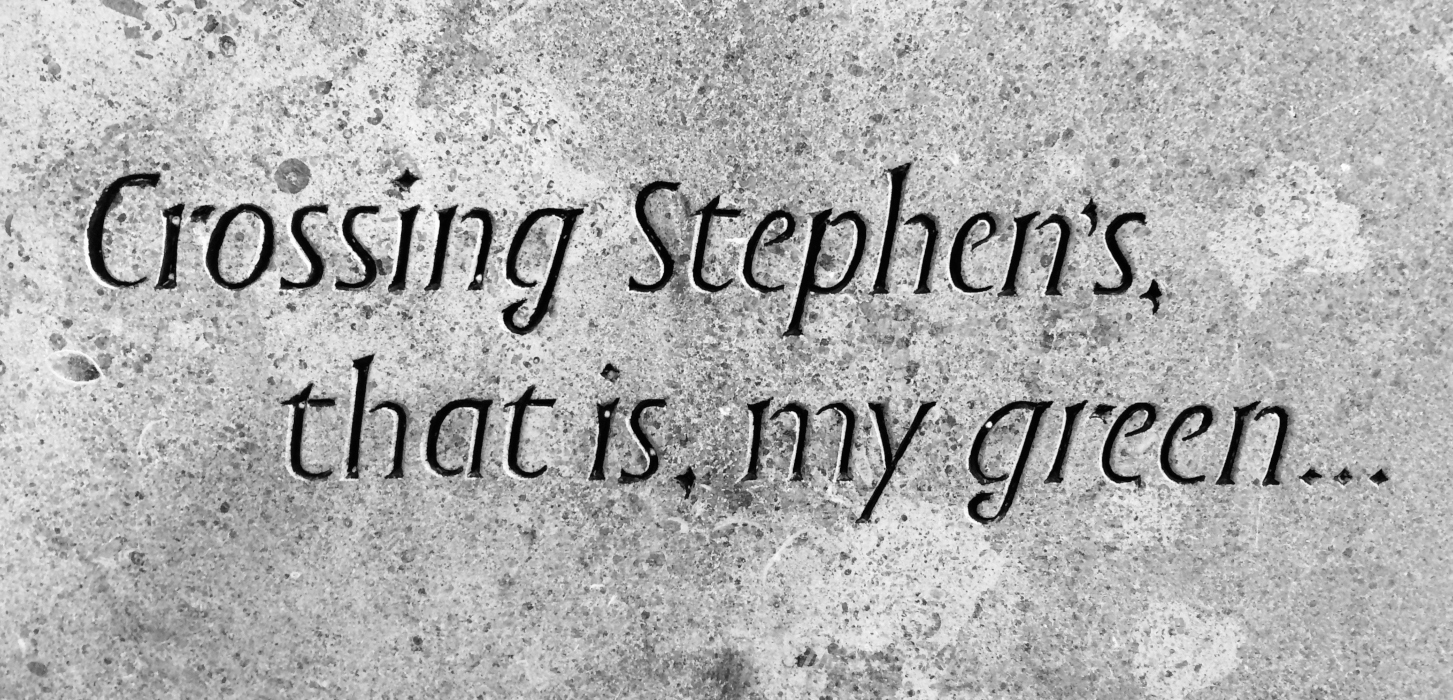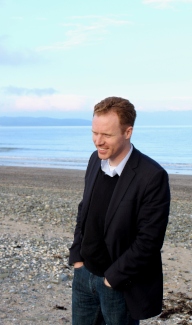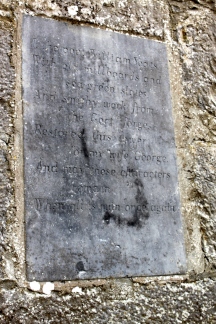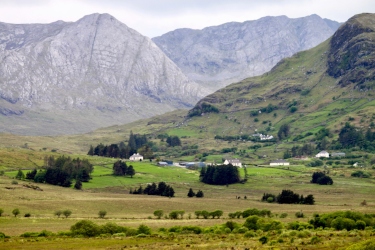A Conversation with Dr. Gregory Baker, Director of Irish Studies

by Isabelle Rosini (B.A. English '20)
Proud of its own Irish roots, Catholic University has long been committed to studying Irish civilization. Since the establishment of an endowed chair in Gaelic Languages and Literature in 1896, faculty at CU have worked to provide students with opportunities to immerse themselves in the culturally and intellectually rich history of Ireland. Today, the university offers a minor in Irish Studies, an interdisciplinary program that combines study of the Irish language with courses focused on Irish literature, history, and politics, among other topics. Dr. Gregory Baker, Assistant Professor of English Literature and Director of Irish Studies, helped create the minor and teaches courses in Irish and British literature. Passionate about Ireland and its many contributions to society, Dr. Baker here talks about his involvement with the program, relaying some fascinating details about the origin of Irish studies at CU while highlighting the program's goals and recent achievements.

How and when did you get involved with the Irish Studies program?
At the time of my hiring there was an expectation that I would be involved in rethinking the Irish Studies program we have at Catholic. Happily when I began teaching in the fall of 2013, there was already a group of faculty who had begun to do just that. This group included professors from across the departments of Drama, English, History and Modern Languages, principally Patrick Tuite, Jennifer Paxton, Jennifer O'Riordan, and the now-retired Chris Wheatley and Tim Meagher.
Some people may be unaware of the deep ties that Catholic University has with Ireland and the movement for Irish Independence in the 1890s and early 1900s. Could you talk a little about Catholic U’s Irish foundations?
CU has a deep history with Ireland and the Irish experience in America. When the university started to offer undergraduate education at the beginning of the 20th century, Catholic University was a natural home for many recent Catholic immigrants seeking higher education in the United States. Many of these immigrants - some of Emma Lazarus' so-called "wretched refuse" - were of Irish descent. They - and often their children and grandchildren - came to CU for a university education that would likely have been denied to them - because of bias and ingrained prejudice - at other universities in the US at the time. Catholic provided them with opportunities to expand their horizon of understanding, to deepen their knowledge and appreciation of the world. The Irish immigrant experience is, I think, very much a part of CU's deep institutional history, and one has only to look on the very names of many of our buildings to be reminded of this fact on a daily basis. CU remains a very 'green' campus!

Given the university's association with the Irish in America, it is not a surprise really that Yeats - coming to the US for the first time in the winter 1903-1904 - decided to visit. By 1904 Yeats was already a well-known poet and controversialist in Ireland, though he was still only 38 years old. He was invited to lecture at CU by professors Maurice Egan and Rev. Thomas Shahan, both of whom were sympathetic to the aims of the Irish Literary Revival. Shahan himself had earlier helped secure funding to advance the study of the Irish language on campus. For those interested in the university's early commitment to Irish language learning, I'd encourage you to visit our webpage: irishstudies.cua.edu. For Yeats, however, Catholic was a place where he thought he could further drum up American support for contemporary Irish writing. His lecture took place on a winter's evening before a large audience on the second floor of McMahon. He and Maurice Egan later dined with then president Theodore Roosevelt during his visit as well - though, according to one report, Yeats' pronounced affectation and bizarre table manners led to a strange but amusing misunderstanding between the president and the poet.
What did Yeats think of the university at the time?
One of the things which impressed Yeats most on his US tour that winter was the broad-minded atmosphere he encountered at a number of Catholic universities across the country. It was unlike anything he had known in Ireland, where he often found himself quarreling about education, literature and the arts with what he called the 'pulpit and the press.' Yeats was eager to see Irish education nourish the arts and national life, but sympathy for small-minded forms of moralism and political extremism ran high in Ireland in those days, and he believed they threatened not only free artistic expression but the national character as well. However, after visiting CU as well as Notre Dame in 1904, he felt that the spiritual and intellectual life of American Catholic universities was markedly different than what he had known at home. Our campus, in particular, inspired him. He wrote Thomas Shahan on leaving DC that winter to tell him that CU was "surely a great university...I wish we had its like in Ireland.”
Coming back to the present, how does the Irish Studies minor complement an undergraduate degree at CU? What about for English majors in particular?
Like European Studies, Islamic World, and Latin American Studies, the Irish Studies minor is open to all undergraduate students at Catholic. While the minor only supplements your major area of concentration, it is thoroughly interdisciplinary and draws on our faculty from across the university, from the departments of English, History, Drama and Modern Languages. You take 6 total classes in a variety of subjects, examining the languages, literature, and culture of Ireland from different perspectives and methods of inquiry. For those especially interested, the program also offers the unique opportunity to begin learning the Irish language.
For CU English majors, I think the Irish Studies minor might have a particular appeal. All literature has history, of course - in and about the 'wordhoard' - but in a more obvious way, Irish literature appears bound up with the social and religious history of a particular place, its languages and its complex politics. Our program stresses this, above all, and in so doing brings out one of the strengths the faculty in English bring to their research and teaching, namely our commitment to addressing the connections between style and literary history, between aesthetics and the time-bound fabric of literary invention.
Is there a course within the Irish Studies program that you particularly enjoy teaching? Are there any courses that seem to be particularly popular among students?
I have taught a number of courses for Irish Studies, and I am happy to say I have yet to teach one I have not liked. That speaks to the richness of the literature written in Ireland during the last century, and to the energy which CU students bring to my classes. A favorite from a few years ago, 'Dublin and the Invention of Ireland,' specifically examined literature written in and about Dublin and its role in forging Ireland as a nation. This coming fall, I will be teaching 'ENG 368 - Seamus Heaney, Irish Poet.'

As director of the Irish Studies program, how have you seen the program grow over the past couple of years? How would you like to see the program grow in the future?
We have seen the Irish Studies program grow incrementally each year. Real maturation is, of course, a slow and deliberate process. But we are fortunate to have a great deal of interest in Ireland across campus, from Irish literature, history and politics to Irish sport and Irish dancing as well. Some of this enthusiasm is generated by the student group, the CUA Gaels. We have also been lucky enough to sponsor visiting Fulbright scholars the last few years. Typically they assist our faculty with the teaching of the Irish language. We also bring speakers and events to campus from time to time. In the recent past we've had lectures by professors Gregory Castle (University of Arizona), Fran Brearton (Queens, Belfast), Florence Impens (University of Manchester), David Ben-Merre (Buffalo State) and Fearghal McGarry (Queens, Belfast). We've also arranged performances by the local Irish musical group, Bog Band, as well as an exhibition of work by the photographer David Monahan. With the support of the Drama department a few years back, the poet Eamon Grennan brought his acting troupe, the Curlew Theatre, to campus, and they performed Eamon's own play, The Muse and Mister Yeats in the Callan. This fall - with help from Solas Nua, a DC Irish arts organization - we are bringing the poet, Jane Clarke, to campus for a reading. Her new book, When the Tree Falls, will be published with Bloodaxe Books in September.
I should add, too, that we are also especially proud of the success which the Irish Summer Institute has had these last few years. The Institute is a course of study run every year in Ireland by my colleagues, Patrick Tuite and Jennifer O'Riordan. Our students spend six weeks (typically in May and early June) studying Irish literature, language and civilization abroad in Dublin and in Cork. It is available to undergraduate and graduate students at CU, and has been particularly appealing for those who, for one reason or another, cannot find the time to study abroad for a full semester during the academic year. Thanks to some generous donors, we are also able to award scholarships to some students annually to help defray the cost of tuition and travel abroad.
Photo credits: Gregory Baker
